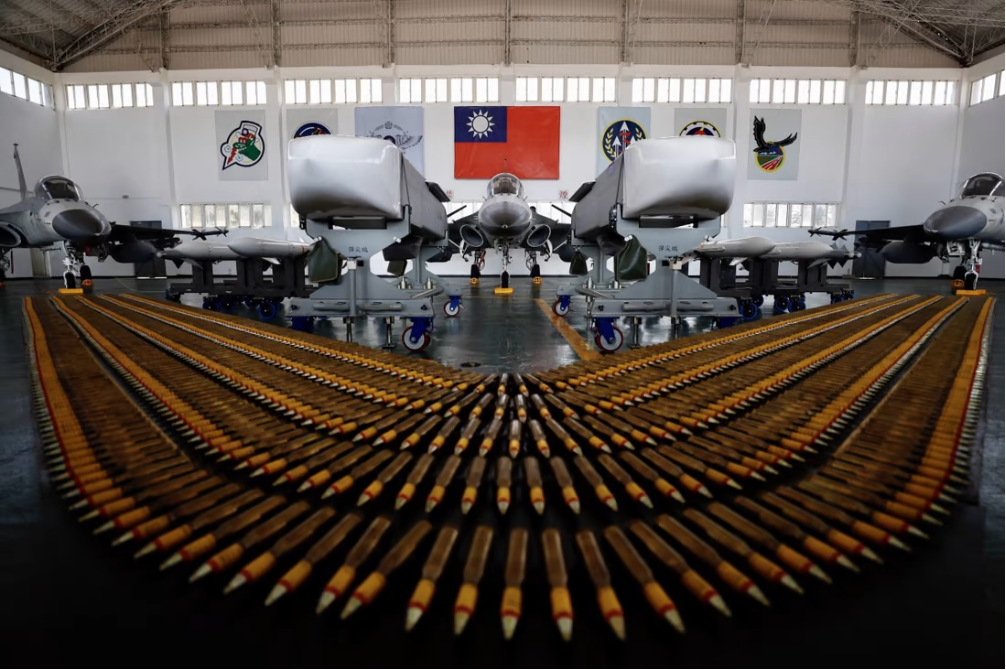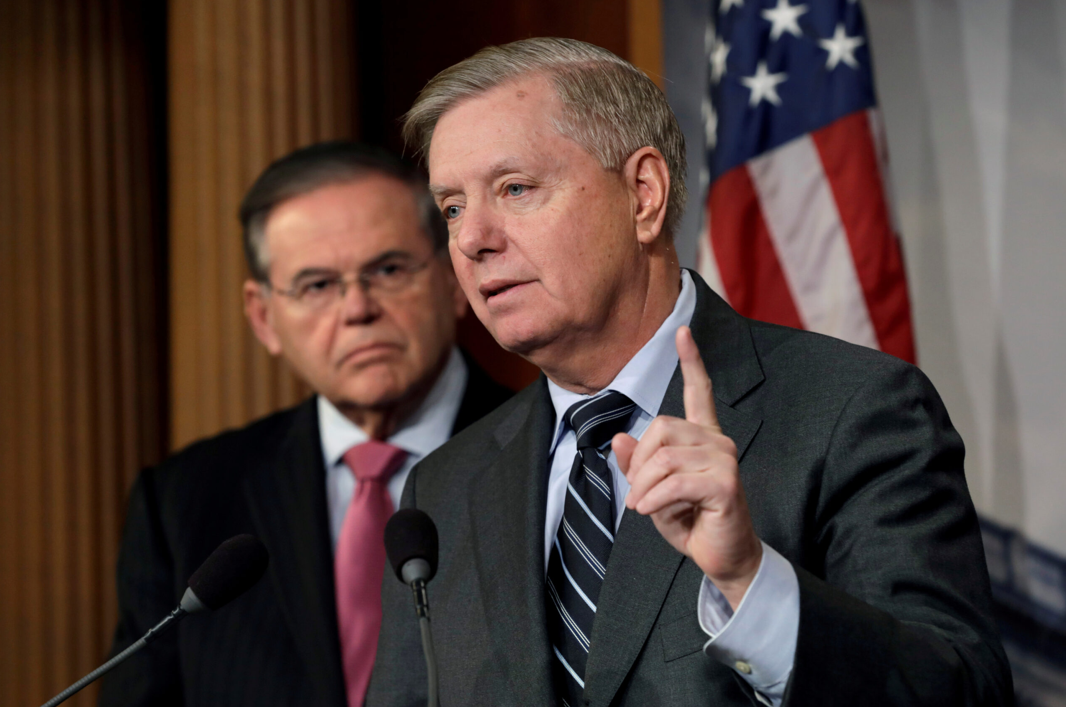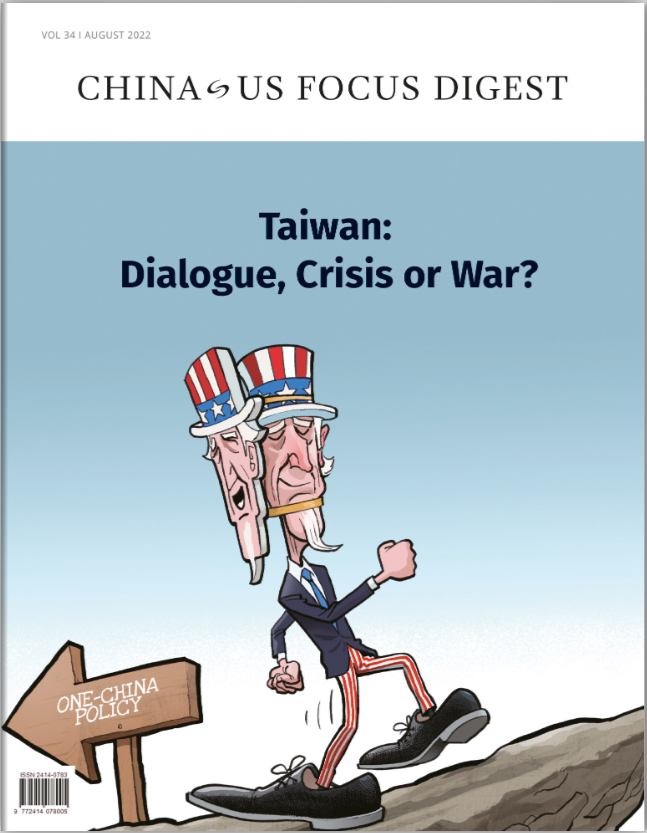
The Taiwan Policy Act would strengthen commitments to help Taiwan defend itself. (Photo: EPA-EFE)
The US Senate Committee on Foreign Affairs just endorsed the Taiwan Policy Act of 2022 by 17-5. The legislation will then be submitted to the Senate for review. If the House also proposes and approves a corresponding legislation later, President Biden may sign it into law. Even if the Act won’t sail through Congress, corresponding clauses may still be incorporated into such legislations as the National Defense Authorization Act and put into practice.
The Taiwan Policy Act of 2022 has the potential to reshape US Taiwan policy as another heavy blow US Congress members have dealt to China-US relations following House Speaker Nancy Pelosi’s Taiwan visit. Against the backdrop of the Russia-Ukraine conflict, there has been a new wave of clamors about “supporting Taiwan” in US Congress. Some American politicians have confused the Russia-Ukraine conflict with the Taiwan question, asked the Biden administration to replace “strategic ambiguity” on Taiwan with “strategic clarity”, and carry out deterrence against potential “invasion” by China’s mainland.
In April, Republican Senator Lindsey Graham and Democratic Senator Bob Menendez led a congressional delegation to visit Taiwan. Graham is the Republican Ranking Member on the Senate Committee on the Budget , Menendez is Senate Foreign Affairs Committee chairman. In June, the two heavyweight senators formally proposed the Act, which incorporated contents of multiple previous Taiwan-related legislations, such as the Taiwan Deterrence Act, and has thus been deemed as a “flagship” legislation supporting Taiwan by the US Congress.
Menendez emphasized the Act will send a clear message to Beijing that it should not make the same mistakes Russia made in invading Ukraine. Graham claimed it will facilitate the most significant expansion of US military and economic relations with Taiwan over the past decades. Once the Act becomes law, it would represent the most in-depth and comprehensive adjustments in US Taiwan policy since the Taiwan Relations Act of 1979.
The initial draft of the Act included a series of seriously provocative clauses meant to promote “one China, one Taiwan”. First, it offered political support for Taiwan authorities. The draft asked for terminating various restrictions on federal officials’ exchanges with the Taiwan side, renaming the Taipei Economic and Cultural Representative Office in the United States as “Taiwanese Representative Office”, and at the same time give Director of the American Institute in Taiwan the tile as “Representative”, which would need approval by the US Senate and receive “ambassadorial” treatments. The draft also proposed to establish a sanctions regime, so as to prevent Chinese mainland officials as well as mainland citizens and entities from taking “hostile actions” targeted at Taiwan.

FILE PHOTO: U.S. senators Lindsey Graham (R-SC) and Foreign Relations Committee Chairman Bob Menendez (D-NJ) are the two authors of the Taiwan Policy Act of 2022.
Second, it offered greater security support for Taiwan. It asked for revising the Taiwan Relations Act, expanding the scope of arms sales to Taiwan from defensive weapons to those conducive to deterring “aggressive actions” by the PLA. It asked for formally bestowing on Taiwan a major Non-NATO Ally status, establishing the Taiwan Security Assistance Initiative, providing Taiwan $4.5 billion in foreign security assistance over four years, accelerating upgrade of Taiwan’s asymmetrical war-fighting capabilities, and upgrading substantive relations with Taiwan in military personnel exchanges and defense planning.
Third, it sought to deepen US economic relations with Taiwan. The draft stated that developing US-Taiwan relations of economic cooperation is of extremely pressing importance. It asked for further improving such mechanisms as the US-Taiwan Economic Prosperity Partnership Dialogue, promoting Taiwan to play a greater role in US efforts for coping with supply chain security risks and promoting free and open economies in the Indo-Pacific. It urged the US government to finish TIFA negotiations with Taiwan, and incorporate Taiwan into the IPEF the Biden administration proposed.
Fourth, the draft attempted to expand the so-called “international space” for Taiwan. It required the US government to help Taiwan authorities participate in international organizations, the US representative to the UN and representatives at other international organizations were also asked to give voice to Taiwan, and support Taiwan authorities’ meaningful participation in international organizations. It required the US to propose a new resolution at the UN so as to clarify US position on Taiwan’s representation and sovereignty issues in UN Resolution 2758. It also proposed to further expand the Global Cooperation and Training Framework mechanisms the US has set up with Taiwan authorities, and cooperate with such US allies as Japan, the EU and Australia to cope with “influence operations” and “disinformation operations” by the Chinese mainland.
Such contents of the Act no doubt are strongly provocative to the mainland. The Biden administration is very worried the Act would further infuriate the Chinese government. Following lobbying by the White House and some Congress members’ questioning, Menendez and others have made adjustments to the clauses and their wording. The current version of the Act passed by the Senate Foreign Affairs Committee changed renaming of the Taipei Economic and Cultural Representative Office in the United States as “Taiwanese Representative Office” from congressional “authorization” to “suggestion”. Nor does it require Senate approval of the appointment of the AIT director. The present version asks for treatments for Taiwan equivalent to a Non-NATO Ally, instead of directly giving Taiwan authorities such status.
Click to read the August issue of China-US Focus Digest
But such adjustments won’t be able to conceal the Act’s odious impacts on China-US relations. In fact, some Congress members, such as Democratic Senator Chris Murphy and Republican Senator Rand Paul, worry the legislation will not only result in greater tensions in China-US relations, but even accelerate the mainland’s moves to seek reunification by force. Ed Markey, chairman of the Senate Subcommittee on East Asia, the Pacific, and International Cybersecurity Policy, has proposed to amend the Act, asking to set up a military crisis hotline in order to handle possible incidents of miscalculation across the Taiwan Strait.
Obviously, if corresponding clauses in the Taiwan Policy Act are put into practice, they will further consolidate the mainland’s perception that the US side is replacing “one China” with “one China, one Taiwan”, and prompt the mainland to take more “resolute measures”, the risk of China and the US sinking in direct conflict in the Taiwan Strait will hence increase significantly. Menendez has been clamoring about deterring the Chinese mainland with the Taiwan Policy Act, but he lacks accurate understanding of the connotations of “deterrence”. The purpose of “deterrence” is to avoid war, yet what Menendez and his likes are doing is pushing China and the US toward military conflict.
We should not ignore “Taiwan independence” is the fundamental cause of the escalating tensions across the Taiwan Strait, US Taiwan policy once highlighted a balance between “opposing reunification by force” and “opposing Taiwan independence”, but it has nearly given up on “opposing Taiwan independence”, reflecting US tendency to “change the status quo” on Taiwan. Many of the mainland’s moves to deter “Taiwan independence” have been misread by the US as accelerated steps toward “reunification by force”, and the Tsai Ing-wen authorities have attempted to push their agenda for independence taking advantage of the window of opportunities the US new Cold War against China has brought them. There are serious deficits in strategic communication and mutual trust between the two sides of the Taiwan Strait as well as between China and the US, all parties are preparing for the possible “showdown” and large-scale military conflict that may occur in the next few years. The Taiwan Policy Act of 2022 does have the effect of adding fuel to the fire, and peace and stability across the Taiwan Strait will inevitably face even more severe challenges.
